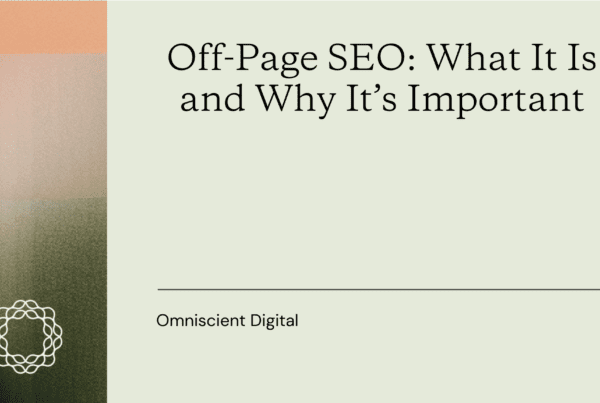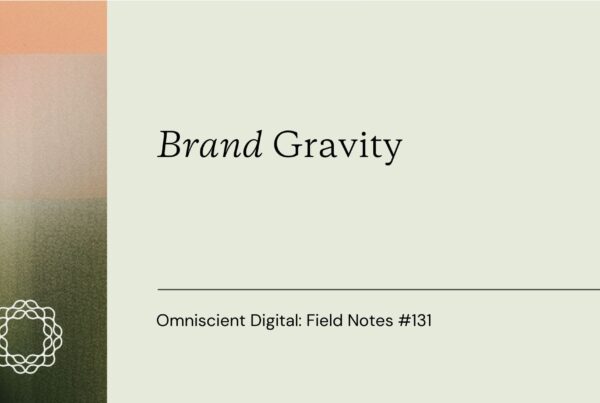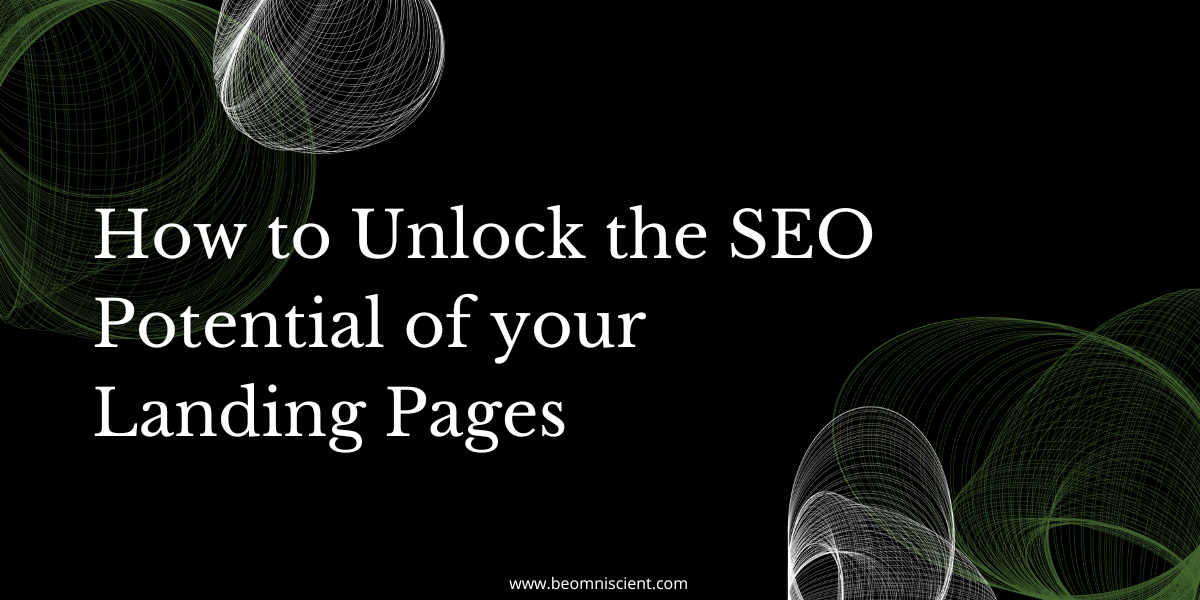
Right now, you may have landing pages on your domain with unrealized SEO potential.
Or, you might have specific pages that just need a bit more SEO attention to start ranking higher and drive more traffic from the SERPs.
But how do you know which pages those are and how to start leveraging them? This article will explain how to identify pages on your website with the greatest SEO potential in order to improve their performance.
By learning how to forecast the SEO potential of your landing pages, you can direct your time and resources to those pages that will pay off with the most organic impressions and clicks.
What is SEO Potential?
Simply put, SEO potential is the likelihood that a given page will rank well in search engine results pages (SERPs).
This is determined by a number of factors, including the page’s content, its structure, its backlinks, and more.
Pages with high SEO potential are more likely to rank in the top results for relevant keywords and queries. This can result in a significant increase in web traffic and conversions.
How Do You Measure SEO Potential?
There are a variety of factors that influence how likely a landing page is to rank in search engine results.
1. The Page’s Content.
Google wants to promote high-quality content to users. Their crawlers render all of the content on your web pages in order to understand what it is about, what keywords it is relevant to, and how it provides value to users. That includes everything from the landing page copy, images, videos, internal links, external links, and more.
In addition, your landing page can also leverage the use of an FAQ section to add more substance, content, and keywords to your page without distracting users from the page’s main purpose. SoFi’s landing page on debt consolidation loans is a great use case of FAQ sections.
2. The Page’s Title Tag and Meta Description
Google looks to meta tags to understand what the content of a web page is about. Adding your target keyword to your title tag and meta description helps Google understand that those landing pages should be promoted for those keywords.
3. The Page’s Backlinks and Anchor Text
Google is more likely to promote pages with many backlinks pointing to it. Why? Because backlinks show Google that many other webmasters on the internet find your content valuable enough to link to it.
4. The Page’s Load Time and Mobile-friendliness
Nobody likes a slow website, which is why Google prioritizes fast-loading, high-performing web pages in its ranking algorithm. Google uses Core Web Vitals to measure a page’s performance, and your landing pages that with passing CWV metrics will have greater SEO potential than slow-loading pages.
5. The Page’s Relevance to the User’s Query
Ultimately, Google will not promote a web page if it has no relevance to the user’s search query. Google wants to provide users with an answer to their question, as well as any additional questions that may come after.
6. The Overall Topic Area and Authority of a Domain
Google wants to promote web pages from domains that have proven expertise in their topic areas or a strong reputation in their industry niche. If you are a website that offers weight loss treatment and medication, like Form Health, Google is unlikely to promote an article on your web page if it is about something outside your industry, like real estate. Instead, you should focus on creating content around nutrition, diabetes, physical activity, etc.
8. The Page’s use of Keywords and Other Search Engine Optimization (SEO) Techniques
Web pages that display SEO best practices are more likely to rank in the SERPs, because they have made it easier for Google to find, crawl, index, and understand their landing page content.
Taking the time to optimize your web pages for organic search results is the best way to improve their keyword rankings and ranking positions.
6 Strategies for Leveraging Your SEO Potential
Now that you know what it takes for a web page to have SEO potential, there are a few ways that you can more easily identify which landing pages on your website have it.
Once you identify your landing pages with the greatest potential, you will want to focus on improving their SEO.
- Find Pages With High Impressions But Low Clicks
An impression happens every time a user sees your web page in the SERPs, even if they don’t click on it. Impressions are a sign that Google sees your web page as relevant and is promoting it for relevant keyword queries.
If you have pages on your website with high impressions and low clicks, that is a strong signal that you may have an opportunity for on-page optimization. Google is already promoting those pages, and a little more optimization work may help you start ranking on the first page, where you are more likely to earn organic clicks.
For example, the software SearchAtlas provides an SEO potential score. The below pages would be good ones for this website to focus their optimization efforts, as the software has rated their potential as high.
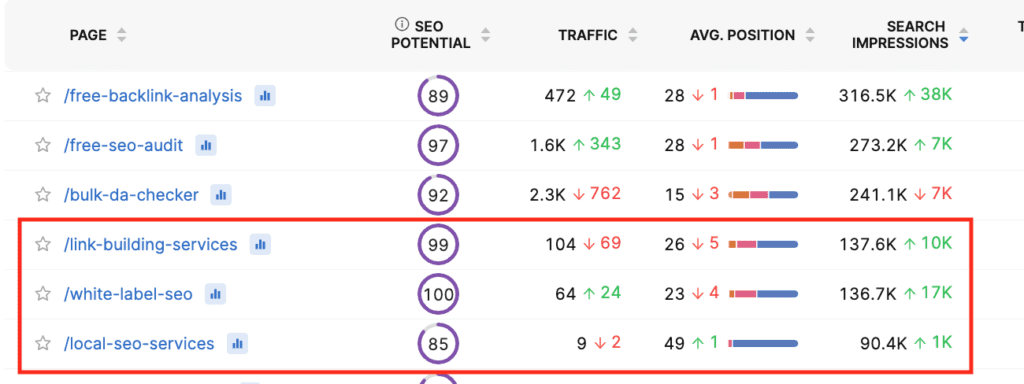
Those pages that Google is already giving you impressions for may just need a bit more SEO attention to start appearing on the first page. Consider taking the following steps:
- Increase the length and depth of the content
- Make sure your page title and meta description include your target keyword
- Build internal links to those pages on your domain
- Try to earn backlinks to the page with digital PR or link building outreach
- Look for Keywords with Higher Search Volume and Lower Keyword Difficulty
Some keywords are more popular than others, meaning ranking for those keywords can get your content in front of the eyes of more people.
A keyword’s monthly search volume tells you how many users are searching for that keyword every month. If you have content on your website that is relevant to keywords with higher search volume, that means you could be getting your content in front of a lot of potential customers.
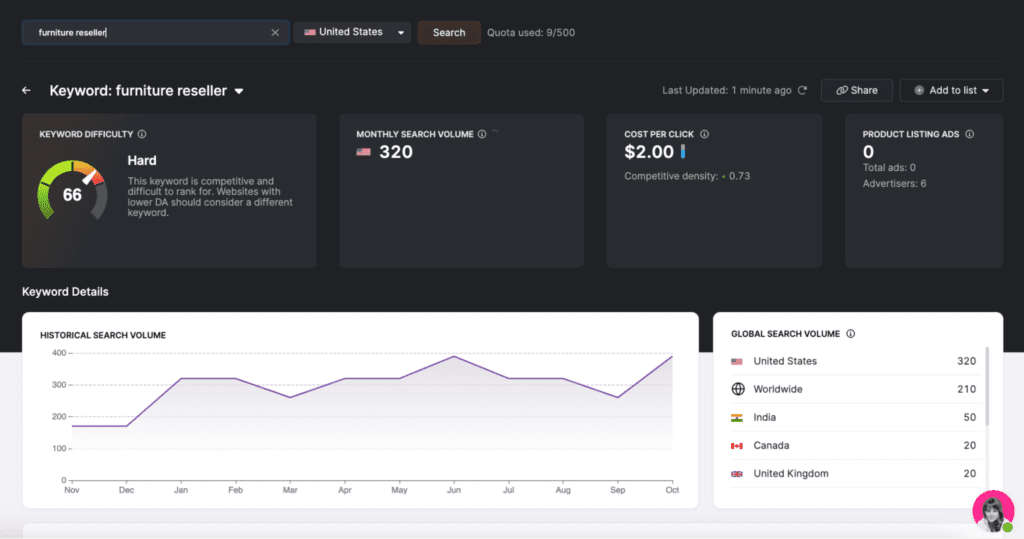
But often, keywords with higher search volume are more competitive. That’s because your competitors also want to rank for those keywords because of all of the users searching for it.
If your website has strong Domain Authority, you will have less trouble ranking for competitive keywords, but here are some tips for how to find good keyword opportunities:
- Optimize for keywords with difficulty scores that are less than or equal to your website’s Domain Authority
- Consider long-tail keywords, which often display strong search intent but have less competition
- Avoid keywords with really low search volume, otherwise you are optimizing for nobody!
- Look for Pages with In-depth, Long-Form Content
Google likes to promote web pages that provide in-depth answers to users questions and a comprehensive exploration of a given topic.
If you have informative resources like blog posts or long-form articles and landing pages, they stand a good chance of ranking in the SERPs, as long as they display the quality indicators that Google crawlers look for.
Right now, these long-form pages may already be ranking for the clusters of keywords related to that primary topic of the page. But if they are still not ranking on page 1, consider building backlinks to those pages.
You may just be missing the link equity boost you need to start appearing on the first page.
- Optimize with the help of a Content Optimizer Tool
Once you have identified pages on your domain that have SEO potential, you can use content optimizer software to help improve their ranking positions.
These tools provide the “cheat codes,” for ranking, or the words, topics, subtopics, and questions you’ll want to include on the page in order to provide a more in-depth, high-quality piece of content to searchers.
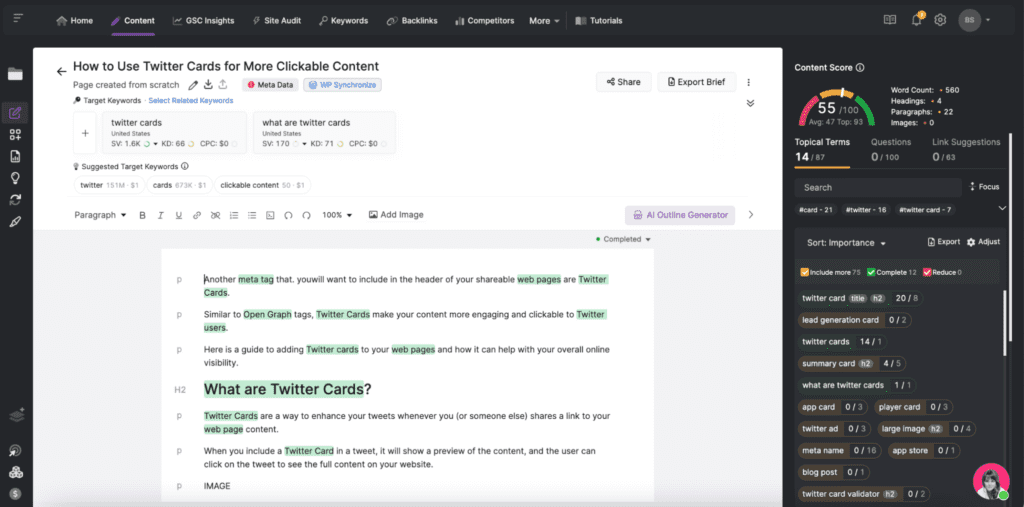
Improving your content score can lead to better ranking positions or total keyword rankings, meaning more opportunities to generate clicks.
5. Look for Pages to Do Internal Link Building
You can also help the potential of web pages on your domain by internal link building, or adding internal links to those target pages.
Sending more link equity to those pages can help improve their overall Page Authority. Also, if you use keyword rich anchor text and SEO annotation text when linking, it can help search engine crawlers better understand what those pages are about and which keywords they should be promoted for.
6. Invest in a Link Building Campaign
If you already have the high-quality content you need to rank in search engines, then it may be off-site signals that are keeping your landing pages from their full SEO potential.
Backlinks are Google’s number one ranking factor, meaning no SEO strategy will pay off quite the way that link building outreach does. But links are hard to get, which is why outsourcing your link building to an established SEO agency can mean helping your landing pages get the authority signals they need to rank.
Consider investing in link-building services by an SEO agency or as part of an overall content marketing package from Omniscient Digital. Or, get more members of your marketing team to try and acquire backlinks to those important pages through public relations or digital PR. To get started, you can use this helpful link building email outreach template.
A little link equity can go a long way, and you are bound to see amazing results by investing in off-site SEO strategies like this.
Conclusion
With just a bit more work, you can find the pages of your website with the most SEO potential and start capitalizing on it.
Our content strategy course for marketers offers training modules to help unlock this potential. In it, you’ll learn unique strategies such as the Barbell Strategy and content economics.
If you don’t take advantage of the organic opportunities in your industry, chances are, one of your competitors will.
Unlocking your SEO potential may only require a bit more optimization work, so take the time to identify and forecast the potential organic clicks a page can bring. The benefits to your organic traffic and visibility will be exponential.


